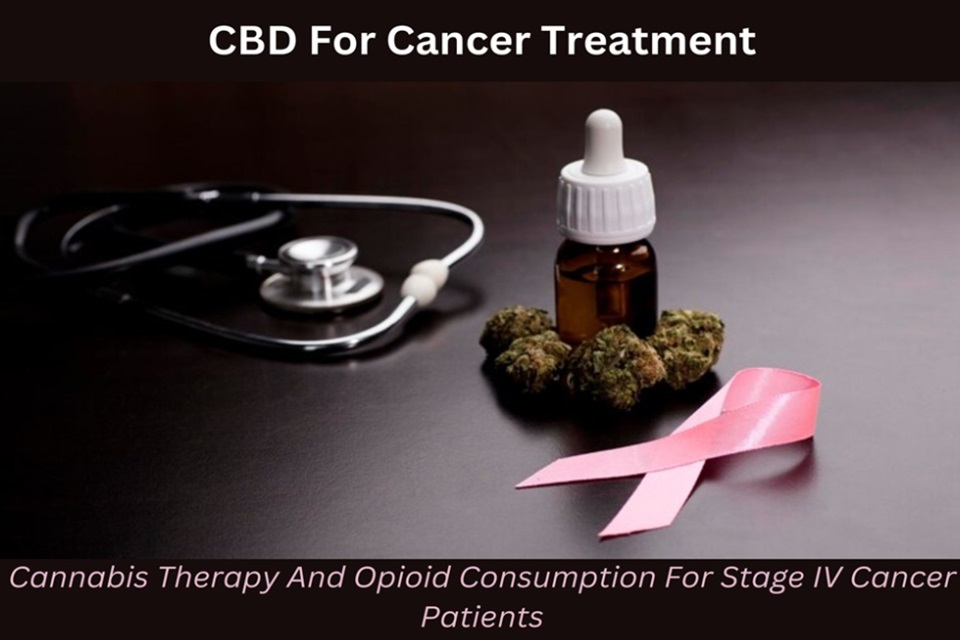Cannabis Therapy & Opioid Consumption For Stage IV Cancer Patients
The battle against cancer is complex, requiring effective symptom management. Despite rising cases and available medications, a promising contender has emerged – medical cannabis. This article delves into the growing evidence supporting cannabis’s positive impact on cancer-related symptoms, particularly pain and opioid use. Examining a recent study on stage IV cancer patients, we unravel the findings and implications for integrating medical cannabis into cancer care. As the world grapples with the need for alternative treatments, this exploration sheds light on the potential of cannabis in alleviating the burden on cancer patients.
Cannabis & Cancer: A Symbiotic Relationship
- Current Landscape Of Cancer Cases: The alarming rise in cancer cases necessitates innovative approaches to symptom management. While traditional medications exist, their efficacy and side effects often pose challenges.
- Medical Cannabis: With over 20 studies since 2000, medical cannabis has shown promise in alleviating cancer-associated symptoms. Notably, two large registry studies demonstrated a significant improvement in symptoms and a reduced reliance on opioids among medical cannabis patients.
- CBD’s Ascension In Cancer Treatment: Cannabidiol (CBD), a non-psychoactive compound in cannabis, is gaining traction for its potential in treating cancer. The study discussed emphasizes the role of CBD in managing pain and reducing opioid use in stage IV cancer patients.
Navigating The Trial: Design & Methods
- Understanding The Trial Parameters: The trial, focusing on patients with incurable or stage IV cancer, explored the impact of early cannabis intervention. Patients were divided into early cannabis (EC) and delayed cannabis (DC) groups, with a meticulous analysis of their experiences.
- Cannabinoid Dispensation: The study revealed a notable difference in THC and CBD dispensation, with THC being almost twice as prevalent. This highlights the importance of understanding the cannabinoid composition for effective cancer care.
Analyzing Pain & Opioid Use: Key Findings
- Pain Perception And Personalized Goals: Despite baseline similarities in pain scores, the EC group exhibited an increased number of patients meeting personalized pain goals. Meanwhile, the DC group saw a decline in achieving these goals.
- Opioid Use: The study showcased stable opioid utilization in the EC group, contrasting with a 57% increase in average daily opioid morphine equivalent (OME) in the DC group. The EC cohort’s ability to reduce daily OME by at least 20% further emphasizes the potential of medical cannabis in minimizing opioid reliance.
Beyond Numbers: Patient Experiences & Conclusions
- Adverse Events And Patient Perceptions: Remarkably, no adverse events were reported. Patient perceptions, as reflected in close-out questionnaires, revealed a moderate “negative impact” score but an overall high perceived benefit from medical cannabis use.
- Researcher Insights: The researchers stress the need for larger, prospective trials, emphasizing the feasibility of their trial design. They advocate for more studies to guide effective and cost-efficient integration of medical cannabis into cancer treatment plans.
In Summary
In conclusion, the integration of medical cannabis into cancer care shows promise in managing symptoms and reducing opioid reliance. The study’s positive outcomes and patient satisfaction underscore its potential benefits. However, challenges such as limited recommendations from the medical community and the need for more extensive trials temper the enthusiasm. Striking a balance between optimism and cautious exploration, the journey of medical cannabis in cancer treatment unfolds as a compelling narrative with both positive strides and areas awaiting further exploration.
Frequently Asked Questions (FAQs)
Is medical cannabis a replacement for traditional cancer treatments?
Medical cannabis is not a replacement but may complement traditional treatments in managing symptoms.
What challenges hinder the widespread adoption of medical cannabis in cancer care?
Limited recommendations from the medical community and the need for more extensive trials pose challenges.
Are there any reported adverse effects of using medical cannabis in cancer patients?
The study discussed did not report any adverse events, but individual responses may vary.
How can patients access medical cannabis for cancer treatment?
Access to medical cannabis varies by location, and patients should consult with healthcare professionals for guidance.
What role does CBD play in cancer treatment, according to the study?
The study suggests that CBD, particularly in medical cannabis, may contribute to managing pain and reducing opioid use in cancer patients.





